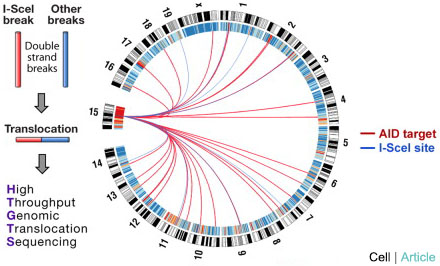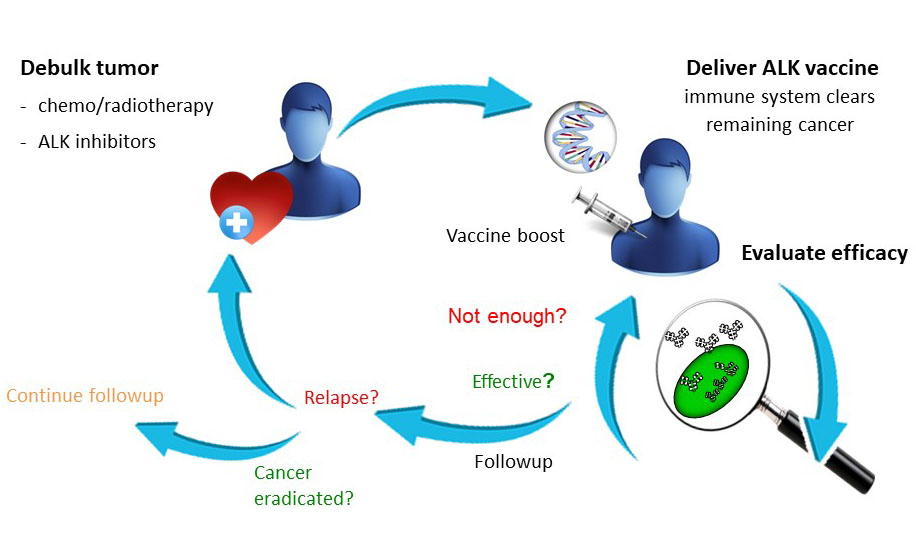Welcome to Chiarle's Lab
The laboratory is interested in mechanisms and therapy of cancers. A large fraction of hematologic and solid tumors are characterized by defined oncogenic events, such as chromosomal translocations. One line of research in the lab is dedicated to the elucidation of basic principles that govern chromosomal translocation formation in normal and neoplastic cells. We contributed to the development of a method to comprehensively map translocations at a genome-wide level. By leveraging this method called High-Throughput Genome-wide Translocation Sequencing (HTGTS) we began a series of studies aimed at defining general rules for translocation formation, focusing on how transcription, DNA Double Strand Breaks (DBSs), tissue specificity and other nuclear or DNA repair factors can influence the type and the frequency of translocations found in human cancers. Other large area of research in the lab focuses on tumors driven by oncogenic alterations of the Anaplastic Lymphoma Kinase (ALK) gene, such as translocations and activation mutations that are characteristic of Anaplastic Large Cell Lymphoma (ALCL), Non-Small Cell Lung Cancers (NSCLC) and other type of solid tumors including neuroblastoma. We have extensively studied the role of ALK in lymphoma and in lung cancer by discovering multiple pathways exploited to induce cellular transformation. We are currently implementing innovative therapies such as ALK inhibitors and ALK-specific cancer immunotherapy. We developed an ALK vaccine that generates strong and specific immune responses against tumors cells that express ALK as an oncogenic driver. We are also developing ALK-specific chimeric antigen receptor (CAR) T cells to target tumors that express ALK on their surface, such as neuroblastoma. Finally, we aim at discovering and validating novel mechanisms of resistance to targeted therapy in lymphoma and solid cancers.






